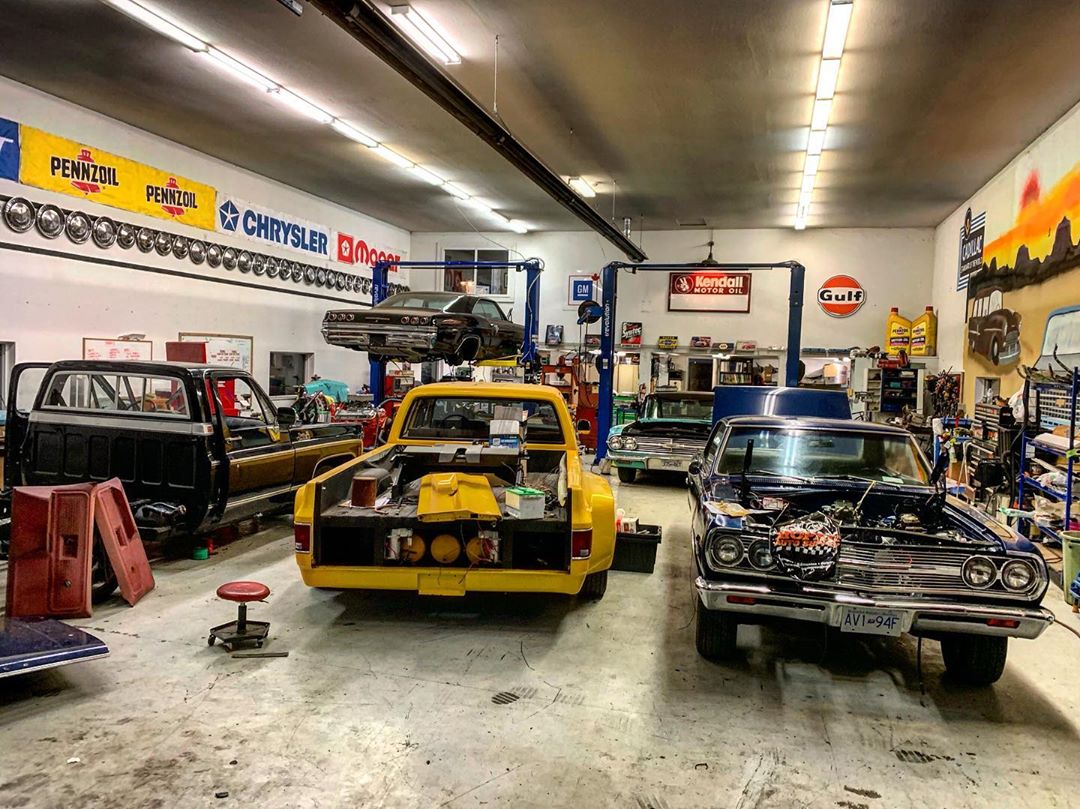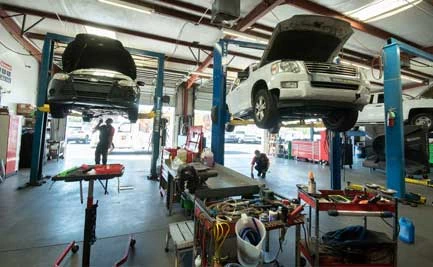All Categories
Featured

When it comes to automobile maintenance, the brakes are arguably the most important system for ensuring your safety and security. Routine brake evaluations are vital to maintaining your braking system in leading condition.
- Why Brake Evaluations Are Essential. Brakes are made to put on down in time, however without routine evaluations, you might not notice when they end up being less effective. A defective brake system can cause severe accidents, boosted repair work expenses, and even the requirement to change other automobile components.
Brake assessments not only help you catch possible concerns before they escalate, yet they additionally permit far better braking efficiency, boosted automobile life-span, and enhanced security.
- Recognizing Indication for Brake Issues. While routine assessments are necessary, you do not have to wait up until your auto's next browse through to the auto mechanic. See for these indication that might show it's time for an examination:
Unusual Noises: A high-pitched squeal or grinding noise when applying the brakes commonly indicates that the brake pads are worn down or damaged. Soft or Spongy Brake Pedal: If the brake pedal really feels soft or spongy when pushed, there might be air or dampness in the brake lines, or the brake fluid might be reduced. Drawing away: If the automobile draws to one side while stopping, it could suggest unequal brake pad wear or a hydraulic problem in the brake system. Vibration in the Wheel or Pedal: If you experience resonance or pulsation when stopping, it may signify deformed blades or irregular brake pad wear. Enhanced Stopping Distance: If it takes longer than typical to bring your automobile to a quit, it may be time to examine the brake pads, liquid levels, or rotors. If you discover any one of these signs, it's best to have your brakes inspected promptly by a professional.
- Key Elements Checked During a Brake Evaluation. During a brake assessment, a licensed technician will check out a number of essential elements of the brake system to guarantee they're operating properly. A few of one of the most vital parts to evaluate consist of:
Brake Pads: These are the rubbing material that presses against the brake rotor to reduce the vehicle. Over time, the brake pads use down and need changing. Brake Rotors: Rotors are the steel discs that the brake pads clamp down on. They need to be smooth and cost-free of deep grooves or splits. Brake Fluid: The brake liquid transfers the pressure from the pedal to the brakes. Low liquid levels or old, infected fluid can lead to inadequate braking performance. Brake Lines: Brake lines bring fluid from the master cylinder to the brake parts. They must be checked for leakages, cracks, or damage. Brake Calipers: These secure the brake pads onto the rotors. They must remain in excellent working order and totally free of leaks. Consistently inspecting these elements ensures your braking system works efficiently and assists you avoid unsafe driving situations.
- How Typically Should You Obtain Your Brakes Checked? The frequency of brake assessments depends upon your driving routines and the kind of vehicle you have. As a general guideline, it's recommended to check your brakes a minimum of when a year or every 12,000 miles. If you drive in heavy traffic, frequently carry hefty loads, or drive on sloping terrain, even more frequent evaluations might be needed.
It's also an excellent concept to have your brakes examined if you notice any one of the warning indications mentioned earlier, as this can prevent a lot more significant problems.
- The Expense of Disregarding Brake Inspections. Ignoring routine brake assessments can bring about serious effects. Used brake pads, harmed rotors, or low brake fluid can create your stopping system to fail when you need it most. In enhancement to the security risks, ignoring brake upkeep can bring about pricey repair work later on.
As an example, if the brake pads are not changed in time, the damage can encompass the rotors, leading to the need for rotor substitute-- a costly repair. By organizing normal brake inspections, you can prevent these pricey repair work and maintain your braking system in excellent problem for longer.

- What Takes place During a Brake Inspection? A specialist technician will do a detailed evaluation of your lorry's stopping system, including looking for the complying with:
Brake Pad Thickness: Brake pads need to be changed when they have put on down to a specific density. Rotor Problem: The mechanic will examine the rotors for signs of wear, bending, or scoring. Brake Liquid Level: Reduced brake fluid can affect braking performance. The technician will certainly check the fluid degree and renew it if necessary. Brake Line Integrity: The brake lines will certainly be examined for any kind of leaks or cracks that could jeopardize the brake system. Once the evaluation is complete, the auto mechanic will inform you of any type of essential fixings or replacements.
Conclusion: Keep Safe with Routine Brake Inspections. Your brakes are essential to maintaining you and your guests risk-free on the roadway, so normal brake inspections need to never be ignored. By taking notice of caution indicators, organizing regular brake checks, and attending to issues without delay, you can ensure that your brakes are always in leading form.
Do not wait up until your brakes stop working-- stay positive about brake upkeep. A tiny investment in brake examinations today can conserve you from pricey repairs and dangerous situations in the future.
Latest Posts
Boost Your Residential Or Commercial Property with Decorative Iron Secure Fencing
Enhancing Your Property with Washington Fence Co.'s Wood Secure fencing
A Kicking Back Day on the Water
